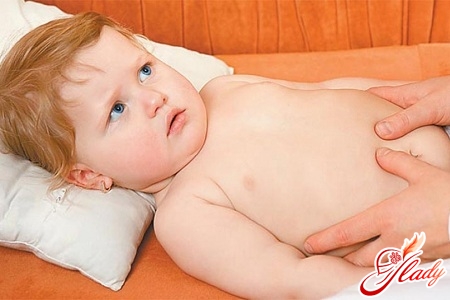 How to get rid of a nervous tic - thisthe question is becoming very popular. Recently, quite a large number of children have been encountering this phenomenon more and more often. What is a nervous tic? A nervous tic is a disease of a neurological nature. Incidentally, a nervous tic occupies a leading place among neurological disorders. Most often, children aged 6 to 10 years face a nervous tic. Transient or, as they are also called, transient nervous tics occur in about three out of ten children. Statistics show that boys are five times more likely to experience this phenomenon than girls. Many parents are very scared when faced with a nervous tic. In order to understand how to deal with nervous tics, you need to know exactly what it is and what causes it. Doctors give the following definition of such a phenomenon as a nervous tic: it is an involuntary and repeatedly repeating movement or some sound over a short period of time. For example, twitching of the cheeks or eyebrows, tension of the facial muscles, pursing of the lips. Vocal tics are manifested by rhythmic snoring, screaming, noisy sighs or sobbing. All tics are divided into certain subgroups:
How to get rid of a nervous tic - thisthe question is becoming very popular. Recently, quite a large number of children have been encountering this phenomenon more and more often. What is a nervous tic? A nervous tic is a disease of a neurological nature. Incidentally, a nervous tic occupies a leading place among neurological disorders. Most often, children aged 6 to 10 years face a nervous tic. Transient or, as they are also called, transient nervous tics occur in about three out of ten children. Statistics show that boys are five times more likely to experience this phenomenon than girls. Many parents are very scared when faced with a nervous tic. In order to understand how to deal with nervous tics, you need to know exactly what it is and what causes it. Doctors give the following definition of such a phenomenon as a nervous tic: it is an involuntary and repeatedly repeating movement or some sound over a short period of time. For example, twitching of the cheeks or eyebrows, tension of the facial muscles, pursing of the lips. Vocal tics are manifested by rhythmic snoring, screaming, noisy sighs or sobbing. All tics are divided into certain subgroups:
In addition, all nervous tics without exceptionchildren are divided into simple and complex. In simple forms of tics, only one group of muscles is involved, for example, facial or calf muscles. Moreover, a nervous tic can manifest itself not only by a simple twitching of the cheek or eyebrow, but even by jumping or squatting. All nervous tics are either transient, that is, temporary, lasting no more than one year. But if tics regularly appear for 12 months or more, doctors talk about a chronic nervous tic.
Nervous tick or ...?
Very often parents confuse a nervous tic with thisphenomenon, such as obsessive movements. For example, you can often hear parents complain that their child, having barely gotten rid of the habit of blinking incessantly, begins to bite his nails. Other parents complain that their child has started to constantly twirl a lock of hair around his finger or check ten times in a row whether the light is off or the door is locked. So, such actions have nothing to do with nervous tics, rather they are related to the so-called obsessive movements. This problem must be solved jointly with child psychologists. However, if you have any doubts, a consultation with a neurologist will not cause any harm to your child.
Distinguishing signs of nervous tics in children
A nervous tic has certain characteristicsdistinctive features that can help observant parents notice the presence of a problem. As you remember, a nervous tic is a consequence of involuntary contractions of a certain group of muscles. However, if you ask the child and he tries very hard, then a weak tic can be stopped by an effort of will and control over the muscles. As a result, the child stops blinking, sniffling or shrugging his shoulders incessantly. In addition, a nervous tic has the ability to migrate, changing its location. For example, a child may have an eye twitching one day, a cheek the next, and the shoulder girdle muscles the third day. Many parents mistakenly take each new location of a nervous tic for a newly onset independent disease. However, in fact, this is not the case at all. Migration is just recurring attacks of the same disease.
The severity of the disease and the causes that cause it
How pronounced a nervous tic is dependson many factors, such as the time of year, time of day, the child's psycho-emotional state at the time of the attack of the disease, etc. For example, a child who spends a long time playing computer games or watching TV programs often has an unstable psycho-emotional state. And it is quite natural that the risk of developing a nervous tic is much higher, and the degree of its expression will be brighter. Emotions such as anger, resentment, embarrassment and even joy also increase the frequency of nervous tics and aggravate their course. But when the baby is busy with some exciting activity that requires maximum concentration, for example, during a game or reading an interesting book, a nervous tic can significantly reduce the intensity of the manifestation of nervous tics, up to their complete disappearance. However, as soon as the child finishes his exciting activity, the tic immediately returns to normal. Of course, parents of children suffering from attacks of nervous tics first of all ask doctors - neurologists the question of what is the cause of the nervous tic. However, even modern medicine is not able to give a clear answer to this question. Nevertheless, doctors still identify several factors, in the presence of which children fall into the risk group for the development of nervous tics. These are the ones that will be discussed below. So, nervous tics - reasons:
- Genetic factor.
Genetic predisposition to developmentThe child's nervous tics plays a significant role. For example, if the child's mother or father also suffered from nervous tic attacks in childhood, their baby has a very high chance of falling into the trap of a nervous tic.
- Disorders of the central nervous system.
Often, those children who experience nervous tics are those whowho suffer from hyperactivity syndrome, attention deficit, minimal brain dysfunction. Neurologists know about this feature of this group of children and know how to help such a child.
- Stressful state of the child.
In the event that the child has experienced nervousshock, or he is in a state of chronic stress, the risk of developing a nervous tic reaches approximately 80%. A stressful environment can be caused by various circumstances - an unfavorable microclimate in the family, illness or death of relatives, the appearance of new family members and much more.
- Beginning of school.
Child neurologists have a concept calledas "September 1st tick". Such nervous tics are caused by the stresses that inevitably accompany adaptation to school conditions, especially in first-graders. Strictly speaking, this type of nervous tics is also a tic caused by a child's stressful state.
- Conjunctivitis.
Most often, pediatric neurologists hear fromparents complain about such a type of disease as nervous eye tic in children. However, most often blinking is not a nervous tic. It occurs as a result of the child having conjunctivitis, or even its consequence. The child experiences unpleasant sensations in the eyes and constantly blinks involuntarily, trying to eliminate them.
- Influence of external factors.
Sometimes the cause of nervous ticscompletely unexpected factors become involved. For example, a turtleneck with a tight neck can become the culprit of a motor type of nervous tic. The child, trying to free himself from the feeling of pressure on the neck area, will constantly turn his head. And even after the turtleneck is removed, the tic will haunt the baby for some time.
Perception of nervous tic by kids
One cannot fail to mention the reaction of thebabies to such an affliction as a nervous tic. As a rule, the vast majority of babies coexist perfectly well with their nervous tics, without thinking about why they arise, and not attaching any importance to this fact, unlike overly fearful parents. And the children surrounding a baby with a nervous tic, as a rule, do not pay absolutely no attention to this feature of their friend. By the way, very often those parents whose children are faced with a nervous tic, blame themselves for this. Very many mothers and fathers torment themselves for a long time with doubts and reproaches: if I had not scolded, if I had not refused, if I had bought and so on, and so forth. Of course, stressful experiences and nervous shocks contribute to the launch of the mechanism of a nervous tic and its further development, and many other problems can well provoke - therefore, it is not worth once again traumatizing the fragile nervous system of the child. However, you shouldn’t blame yourself for the fact that your baby has developed a nervous tic either – after all, without a predisposition to this disease, a nervous tic will not appear anyway.
How should parents behave?
What should parents of children who have encountered such a problem as a nervous tic keep in mind? Neurologists and child psychologists give parents a number of specific recommendations:
- Do not focus on the existing problem.
There is no need to constantly remind the child about hisillness, even casually, in conversation with adults. Doctors have proven that the more you talk about a nervous tic in the presence of a child, the more often his attacks will occur and the more pronounced they will be.
- Do not put pressure on the child.
So many parents do the same thing,a very common mistake. They ask and even order the child: "don't snore", "don't twitch", "don't blink". However, such a measure will not only not bring any benefit, but will significantly worsen the situation, having the opposite effect - increased sniffling and blinking. Moreover, the child does not do this at all to anger his parents, but constant shouting and jerking make the baby unconsciously, involuntarily get fixated on a nervous tic. As a result, even a mild nervous tic can take a rather severe course, which will require serious and long-term drug treatment.
- In good time, seek medical help.
Be sure to do so at the first signs of symptomsnervous tic, parents should seek medical help without delay. However, unfortunately, many parents do not do this, because they consider a nervous tic not an independent disease, but just a bad habit, because otherwise the child would not know how to stop a nervous tic. Most likely, parents come to this conclusion based on the fact that the child is able to restrain an attack of a nervous tic for some time by an effort of will. And as a result, the child receives the necessary medical care only when the disease has already reached an advanced stage. But in the case of a nervous tic in children, treatment must be started as early as possible so as not to neglect the disease.
- Create a comfortable psychological environment for the child.
Of course, follow the child's lead in everything andIndulging all his whims is far from the best solution. However, parents are simply obliged to create a favorable psychological microclimate for the child - you should not discuss serious problems in front of the child, because often the child understands much more than adults think. You should not speak negatively about his friends, and even more so sort things out in front of the child, even if you do it in a completely calm tone and with icy calm.
- Limit the time of watching TV and working on the computer.
In order to reduce psycho-emotionalstress, and at the same time protect the child's eyesight, try to limit the time spent watching TV and working on the computer as much as possible. It is much wiser to organize the child's daily routine in such a way that the baby spends as much time as possible in the fresh air, and not in a stuffy room.
Treatment of nerve tics
Now we come to the final question:nervous tic - how to treat? In many cases, transient (temporary) nervous tics in children disappear on their own, without any serious intervention from a neurologist. However, although quite rare, doctors still encounter cases when temporary tics smoothly flow into chronic ones, affecting more and more different muscle groups. Doctors call such tics generalized. Most often, children's tics do not require any special treatment. Parents should just follow the simple rules and recommendations that have already been given above. As a rule, the correct organization of the child's daily routine and the microclimate surrounding him very quickly help to forget about such a problem as a nervous tic. However, in especially severe cases, when for some reason it is not possible to get rid of a nervous tic in a child with little bloodshed, doctors are forced to resort to drug treatment. Taking into account the age, weight of the child, and the characteristics of the course of the disease, the doctor will select the appropriate medicine for a nervous tic. Parents should not categorically refuse it, since if the child has a complex advanced nervous tic, the treatment must be serious. Pills for nervous tics will not cause any harm to the child's body. Sometimes there is no trace of a nervous tic very quickly, literally two or three weeks - and the child completely forgets about such a problem as a nervous tic. However, unfortunately, sometimes doctors have to observe a completely opposite picture - the treatment is progressing quite slowly and requires constant attention and control from the mother. And then Carlson's favorite saying comes to mind: "Calm down, just calm down!" Otherwise, the child's illness will not disappear in a hurry, and the parents themselves risk getting a nervous tic! We recommend reading:









